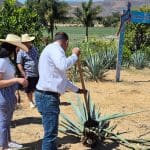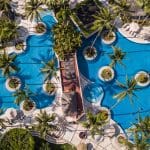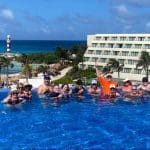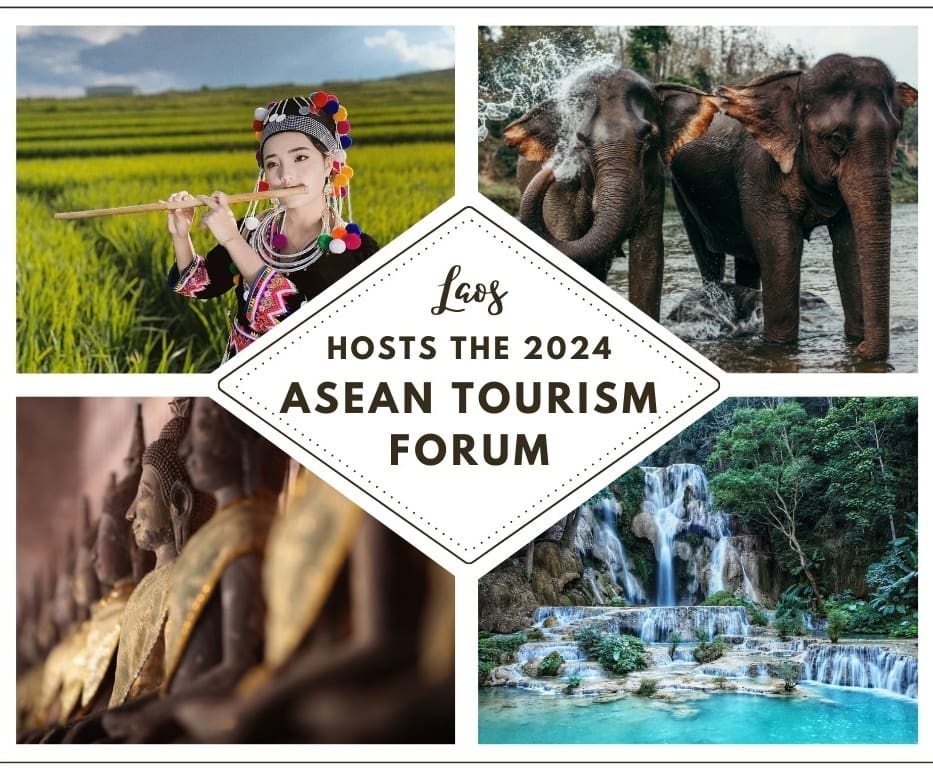
Green matters in Southeast Asia
Conservation and sustainable travel were leading issues at the 2024 Asean Tourism Forum (ATF), held in Vientiane, Laos this year. Presentations by countries in the Asean collective indicated that the region is now getting down to the business of making firm commitments to sustainability goals, reports Travel Courier’s Beatrice Ang.
They did so under the banner theme, “Quality and Responsible Tourism — Sustaining Asean’s Future,” indicating that strategies at the government level are being established to address crucial environmental issues and ensure a greener future for the region.
Leading the charge was host country, Laos. Thanks to a new certification project, it will now be easier to find eco-friendly tourism companies in Laos. The “Lasting Laos” campaign and the Sustainable Practices Projects (SUSTOUR Laos) offer certification for local businesses that focus on responsible business practices and sustainable consumption by providing certifications from the Travelife and Lasting Laos programs.

ATF hosts showcasing ethnic Lao costumes.
To help achieve certification, SUSTOUR Laos provides assistance through training, mentorship, incentives and technical support; about 500 companies with 7,500 staff are now being assisted. Currently, 10 hotels are Travelife certified while 17 tourism businesses have received the Lasting Laos certification. These projects encourage people to conserve natural resources, buy environmentally-friendly products, use local suppliers and apply socially responsible ways to interact with the local communities.
Milestone for growth
This year’s ATF was held at the International Trade Exhibition and Convention Center in Vientiane from Jan 22-27, 2024. This is the largest tourism show in the Asean region, providing the opportunity for dialogue between the tourism ministers and tourist boards of the various countries, as well as a trade show component. This allows global buyers to learn more about the region through one-on-one meetings with regional tourism suppliers.
Eager to review the Asean offerings were 120 buyers from international markets, including Canada, the U.S. and Europe. Amongst them was Pierre Couture, president of Sentiers Du Monde in Sherbrooke, who was attending the show for the first time. Couture, whose clients are FIT travellers, was looking to expand itineraries to Asean countries and was pleased to discover new products featuring off-the-beaten-track offerings.

1) Flags of the Asean nations.
2) Tourism Authority of Thailand’s governor Thapanee Kiatphaibool talks about the steps the kingdom is taking towards sustainability.
3) Laos hopes to welcome more tourists during Visit Laos Year 2024.
Explorations of such products in Laos was in the cards for Couture, with invitations for him to stay and travel in the country after the ATF, but he was booked to return to Canada. He said he regretted the missed opportunity and will know next time to schedule extra time for regional travels.
“This year’s Travel Exhibition (TRAVEX) marks a significant milestone in our ongoing commitment to the growth and rejuvenation of the Asean Tourism Forum,” said Eddy Krismeidi Soemawilaga, president of the ASEAN Tourism Association (ASEANTA). As the leading tourism body in Asean, he was hoping to showcase a more robust and rejuvenated ATF. However, Soemawilaga admitted the size and scope of this year’s ATF would not match previous peak years in the history of ATF.
That is, there were only 250 suppliers in attendance at the trade mart, with just 34 booths. Notably absent from the TRAVEX show were the nations of Brunei and Singapore, who did not have country pavilions. This left some buyers a little bewildered about the apparent lack of a united showcase for the region.
Ricky Poon, the Vancouver-based VP for One Dream Travel, said that the supplier meetings he had requested on the booking platform were not the companies he ended up meeting. This did not faze Poon, a regular ATF attendee, as he worked through the TRAVEX, not just completing the assigned meeting list but also making contact with other suppliers he wanted to see as well.

Asean tourism officials welcome delegates at the ATF opening ceremony.
Marketing sustainability
The ATF also featured sessions over two-days that showcased over 20 speakers sharing expert advice relating to the event’s sustainability theme.
The one that generated the most buzz was titled, “Making Sustainability Sexy – How Do You Market Sustainability?” Moderated by CNN journalist Kristie Lu Stout, it featured a panel of experts including Catherine Germier-Hamel, the CEO of Destination Mekong, a non-profit destination management and marketing organization (DMO). It champions tourism sector causes in countries in the Mekong Region, comprising Cambodia, China, Laos, Myanmar, Thailand and Vietnam.
Germier-Hamel stated that sustainability should be a way of life that must be practiced daily. For Michael Massey, environmental committee chair of the Phuket Hotel Association and GM of Absolute World Resorts, it is a caretaker role.
But Germier-Hamel noted that the travel industry is not doing enough to achieve sustainability goals. She said that tourists need to be educated in responsible behaviour by, for instance, encouraging them to hold onto their room towels without a daily change. This can be accomplished by letting them know the number of tourists who are also taking this action, she said.
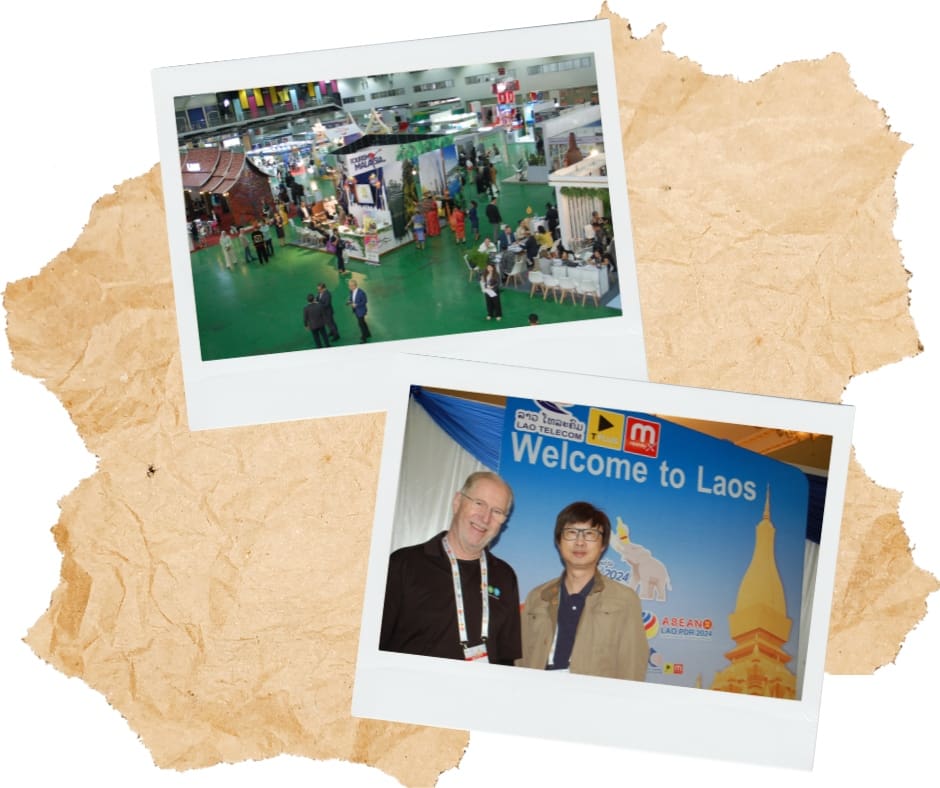
1) The trade show element, TRAVEX was much smaller than in previous years.
2) Canadian buyers Pierre Couture, president of Sentiers Du Monde and Ricky Poon, VP, One Dream Travel.
As to how to preserve bio-diversity, Tom Chantaphone, Laos-based travel agency owner of The Hiker Travel, suggested that people can improve their relationship with nature by exploring the flora and fauna in the areas they are visiting.
And how does one protect the local culture? Massey commented that instead of serving western cuisine, guests can be introduced to local dishes, with explanations. “Tourism is for the well-being of the local people,” says Germier-Hamel. She advises visitors to not just shop at the hotel store, but find ways to spend money in the community.
Meanwhile, local residents can take the opportunity to showcase their towns and villages to visitors. Chantaphone noted that citizens in rural areas are now realizing that tourism can increase their income and that this has the power to transform both the visitor and the host.
For Thailand, Thapanee Kiatphaibool, governor of Tourism Authority of Thailand described the country’s Sustainable Tourism Goals (STGs). These objectives have been aligned with the Sustainable Development Goals established by the United Nations. These allow members of the Thai tourism industry to be classified with a Sustainable Tourism Acceleration Rating (STAR) system. Today, there are 497 businesses with STAR certifications in Thailand. As well, the Thailand Tourism Awards added two new categories – businesses with low-carbon emissions and sustainability excellence, reflecting the country’s commitment to sustainable tourism.
Next year’s ATF will be held in Johor Bahru, Malaysia from Jan 19-25, 2025. Asean (the Association of Southeast Asian Nations) is an economic and political organization comprising 10 countries in Southeast Asia — Brunei Darussalam, Myanmar (Burma), Cambodia, Indonesia, Laos, Malaysia, Philippines, Singapore, Thailand and Vietnam.





